Several CGCC office bearers serve as NPC Deputies or CPPCC National Committee Members. To cope with the country’s development direction of “New Era, New Mission and New Journey”, they actively offered their views and advice at the “Two Sessions” held last month. The country's and Hong Kong’s issues such as economic development and people’s livelihood were discussed.
Jonathan Choi: Bay Area has unlimited potential
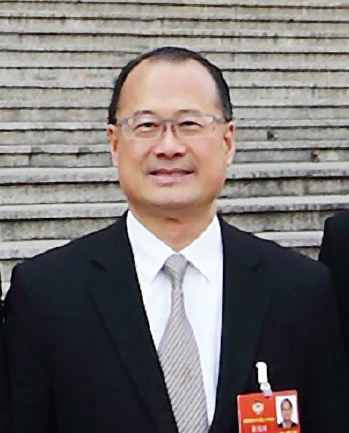
As this year marks the beginning of the 19th CPC National Congress, the new CPPCC session is indeed extra important. Chairman Jonathan Choi (CPPCC National Standing Committee Member), submitted a total of four proposals at the session, including incorporating the Guangdong-Hong Kong-Macao Bay Area as part of the national development strategy to be overseen by a state leader; positioning Hong Kong as an international financial centre under the “Belt and Road Initiative”; drawing reference from Hong Kong to establish a free-trade port cluster in the Bay Area; and promoting innovation and technology development and measures that benefit the public in the Bay Area. All the proposals focused on the Bay Area, a matter that Hong Kong people are most concerned about at present.
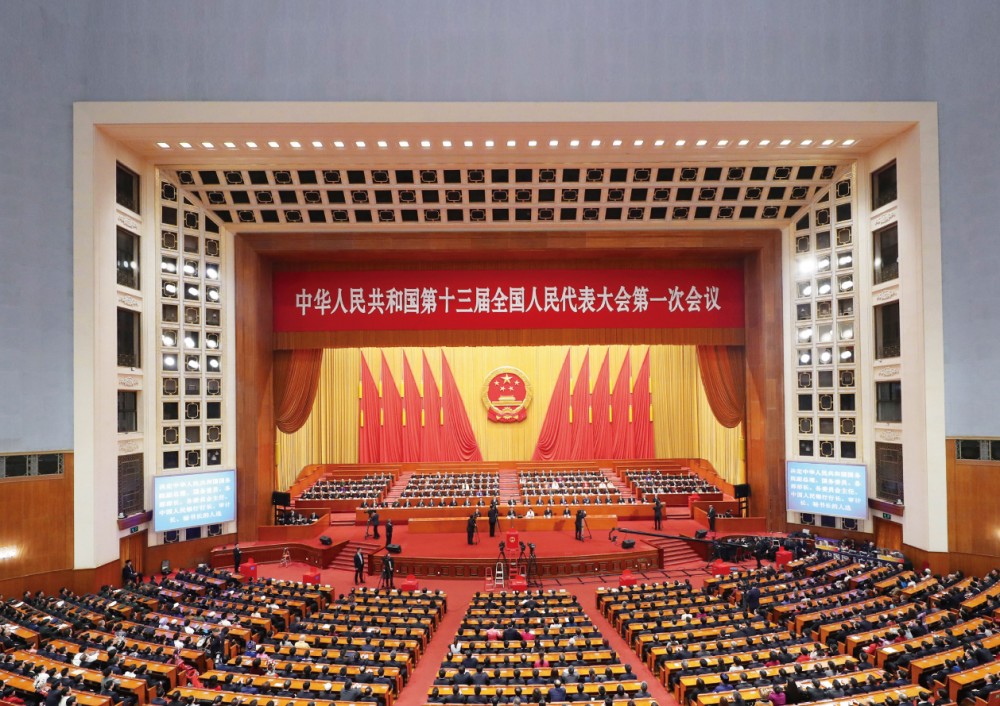 In his proposal to incorporate the Bay Area as part of the national development strategy, Choi suggested that the Central Government should take the lead in establishing a coordinating committee for the Bay Area, which should be headed by a state leader. Choi pointed out that the proposal, spearheaded by him, was endorsed by 113 CPPCC Standing Committee members from Guangdong, Hong Kong and Macao within three short days, which gave him great encouragement. He felt that with the members of the three places working in one mind for a common goal, the Bay Area will have immeasurable potential.
In his proposal to incorporate the Bay Area as part of the national development strategy, Choi suggested that the Central Government should take the lead in establishing a coordinating committee for the Bay Area, which should be headed by a state leader. Choi pointed out that the proposal, spearheaded by him, was endorsed by 113 CPPCC Standing Committee members from Guangdong, Hong Kong and Macao within three short days, which gave him great encouragement. He felt that with the members of the three places working in one mind for a common goal, the Bay Area will have immeasurable potential.
He added that many aspects were covered during the Two Sessions: Premier Li’s work report, amendments to the Constitution and the State Council’s institutional reform in addition to measures for economic development, safeguarding people’s livelihood, streamlining administration, delegating government powers and providing convenience for businesses. This made him deeply sense the Motherland’s achievements in the past five years and its firm determination to continue reform and opening up, of which he was really proud.
This year, Choi said he is deeply privileged to be elected as a member of the CPPCC Standing Committee. He believes this is the paramount honour that the country has given him. He promised to play a more active role in his new position, keep tab on the country’s overall development and focus on assisting it in developing the Bay Area and the“Belt and Road Initiative” to make Hong Kong a better place.
Ricky Tsang: Build a common Bay Area
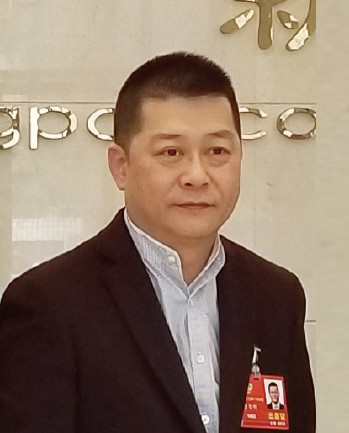
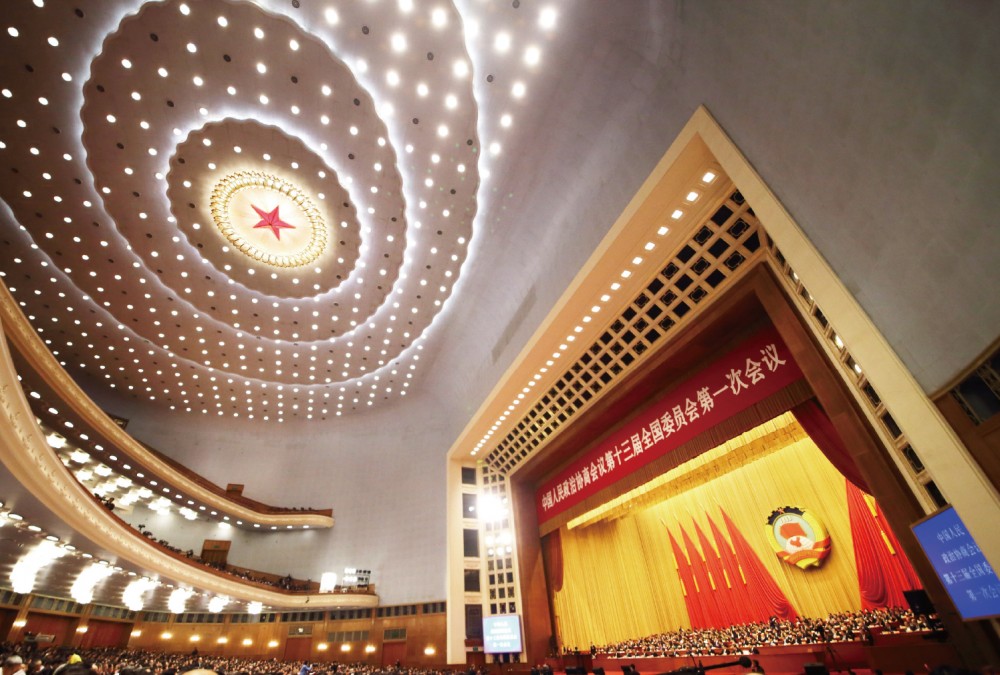 The Guangdong-Hong Kong-Macao Bay Area provides the youth of Hong Kong with a wider scope for development. A survey by the Hong Kong Guangdong Youth Association and Proactive Think Tank, however, found that understanding of the Bay Area is severely lacking among youth in Hong Kong and that government agencies can do more to encourage their participation in its development. Vice-Chairman Ricky Tsang (CPPCC National Committee Member) believes that there is little understanding of the “Belt and Road” and Bay Area among Hong Kongers. This is related to how these concepts are promoted as well as the preferences of how today’s youth in Hong Kong obtain information, which has prevented the spirit of greater regional development from being truly accepted by the people. Tsang stated that improvement in transportation links is an important factor in this. As long as there is a convenient network of transportation links and more open channels, Hong Kong residents will be able to experience for themselves how far the Mainland has come. He also emphasized that the Bay Area can provide the youth of Hong Kong with a pathway for personal development. Given the right conditions, he is confident that the region will be an attractive place to pursue their future ventures.
The Guangdong-Hong Kong-Macao Bay Area provides the youth of Hong Kong with a wider scope for development. A survey by the Hong Kong Guangdong Youth Association and Proactive Think Tank, however, found that understanding of the Bay Area is severely lacking among youth in Hong Kong and that government agencies can do more to encourage their participation in its development. Vice-Chairman Ricky Tsang (CPPCC National Committee Member) believes that there is little understanding of the “Belt and Road” and Bay Area among Hong Kongers. This is related to how these concepts are promoted as well as the preferences of how today’s youth in Hong Kong obtain information, which has prevented the spirit of greater regional development from being truly accepted by the people. Tsang stated that improvement in transportation links is an important factor in this. As long as there is a convenient network of transportation links and more open channels, Hong Kong residents will be able to experience for themselves how far the Mainland has come. He also emphasized that the Bay Area can provide the youth of Hong Kong with a pathway for personal development. Given the right conditions, he is confident that the region will be an attractive place to pursue their future ventures.
Tsang also recommended that the SAR government play a more active role in promoting understanding of the Bay Area among youth in Hong Kong. His suggestions included examining the “Belt and Road Office” model to establish a “Bay Area Office” and create a dedicated commissioner to be responsible for a range of work including coordination, communication and liaison. One function of this role should be to establish a more dynamic way to interact with Hong Kong youth to inform them about the development in the region and attract them to fully participate in it.
Despite sovereignty of Hong Kong and Macao having returned to the Mainland for many years, young people from these regions are still treated as people from abroad when coming to the Mainland for work. Tsang believes that this creates inconveniences and lacks a sense of unity that should come from being a united nation. He recommends that the SAR government request the central government to review and change the articles in certain laws that define residents of Hong Kong and Macao as people from abroad. One example could be a domestic ID card specifically for Hong Kong and Macao residents to replace the current Home Return Permit. He stated that trials could begin in the Bay Area to promote a sense of unity and common interest within the region.
Connie Wong: Reunifying the youth is favorable for sustaining long-term social stability
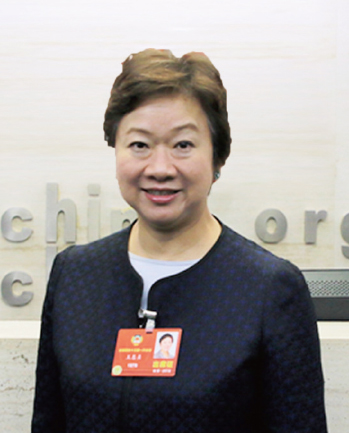
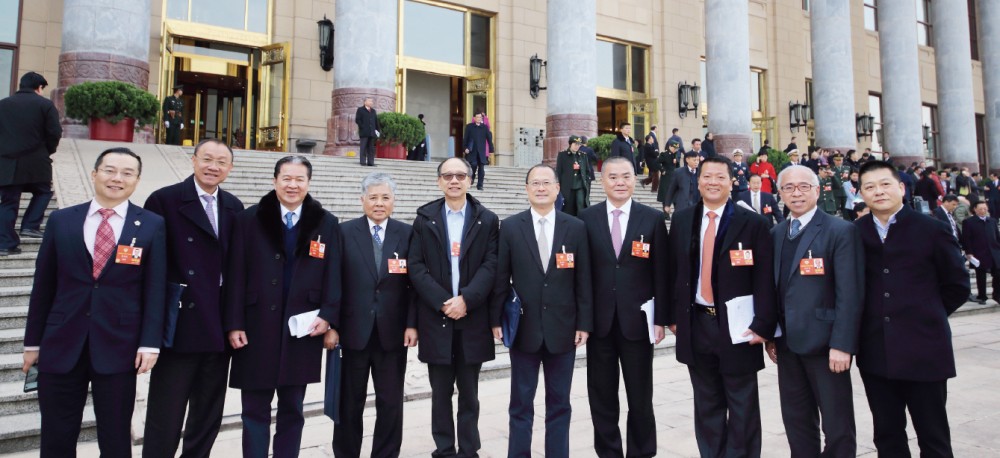 In the report of the 19th Congress of the CPC, Xi Jinping, General Secretary of CPC Central Committee highlighted the importance of a thriving young generation, as they will support the nation’s prosperity. According to Vice-Chairman Connie Wong (Deputy Director of the Committee for Handling Proposals of CPPCC and CPPCC National Committee Member), Xi’s philosophy is just as applicable to the youth of Hong Kong. She reckoned that it is critical to work on reuniting our younger generation and help them understand the country’s current circumstances to facilitate the long-term prosperity and stability of Hong Kong in the future.
In the report of the 19th Congress of the CPC, Xi Jinping, General Secretary of CPC Central Committee highlighted the importance of a thriving young generation, as they will support the nation’s prosperity. According to Vice-Chairman Connie Wong (Deputy Director of the Committee for Handling Proposals of CPPCC and CPPCC National Committee Member), Xi’s philosophy is just as applicable to the youth of Hong Kong. She reckoned that it is critical to work on reuniting our younger generation and help them understand the country’s current circumstances to facilitate the long-term prosperity and stability of Hong Kong in the future.
Wong has a proposal for the Central Government: to confirm the national identity of Hong Kong youth working in the Mainland by offering them incentives on setting up new businesses, together with elderly care protection, medical insurance, education loans etc. that are equivalent to local residents. By sharing the fruits of national development, their sense of belonging, pride and confidence will be enhanced. Another proposal put forward by Wong is to open up civil servant positions in certain departments and regions to Hong Kong youth on a trial basis, or even to allow Hong Kong youth who are keen on becoming enlisted to join the Chinese army, so that they could contribute to the historic responsibilities of revitalizing the Chinese nation. As for the convenience of pursuing further studies in the Mainland, to earn the professional qualifications to practice in China and in the scopes of employment and starting up businesses, Wong thought that the Mainland should recognize the various levels of academic qualifications of Hong Kong youth that are already recognized by Hong Kong and other overseas official bodies. Implementation of this initiative could expand the various channels for their career development.
As for developing in the Guangdong-Hong Kong-Macau Greater Bay Area, Wong pointed out that Hong Kong people are still facing quite many restrictions when they set up new businesses, work, study and live in the Mainland. She believed that, under “one country, two systems”, the Greater Bay Area should first explore the methods and solutions to offer Hong Kong residents national treatment, so that the Greater Bay Area could become the common home of all residents in the area. She also mentioned that the authorities could improve on the bilateral taxation policy between Hong Kong and the Mainland by lowering the tax burden. For example, regarding companies, it is worth considering that Hong Kong companies setting up a permanent base in the Greater Bay Area could enjoy a lowered enterprise income tax of 16.5% instead of the current 25%. On the individual’s front, currently one of the criteria for Hong Kong residents to be exempted from the Mainland’s individual income tax is to stay no more than 183 days in the Mainland within 12 months’ time. She proposed that such requirement should be relaxed in the Greater Bay Area, which would make it more convenient for Hong Kong residents to live and work in both the Mainland and Hong Kong.
Tommy Li: Nurture youths, revitalize tourism and promote TCM
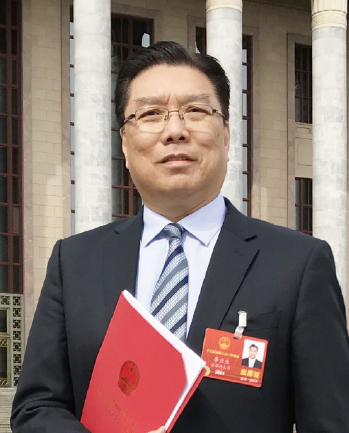
Premier Li Keqiang stated in this year’s government report that “in times of peace, we must not forget times of danger; in times of prosperity, we must not forget times of want”. Our nation’s reform and development were achieved in hard ways. Therefore, we should fully and properly implement socialism with Chinese characteristics in the new era of Xi Jinping and uphold the basic principle of making progress while ensuring stability, treating stability and progress as an organic whole. Vice-Chairman Tommy Li (NPC Deputy) put forward various proposals on nurturing youths, revitalizing tourism and promoting Traditional Chinese Medicine (TCM).
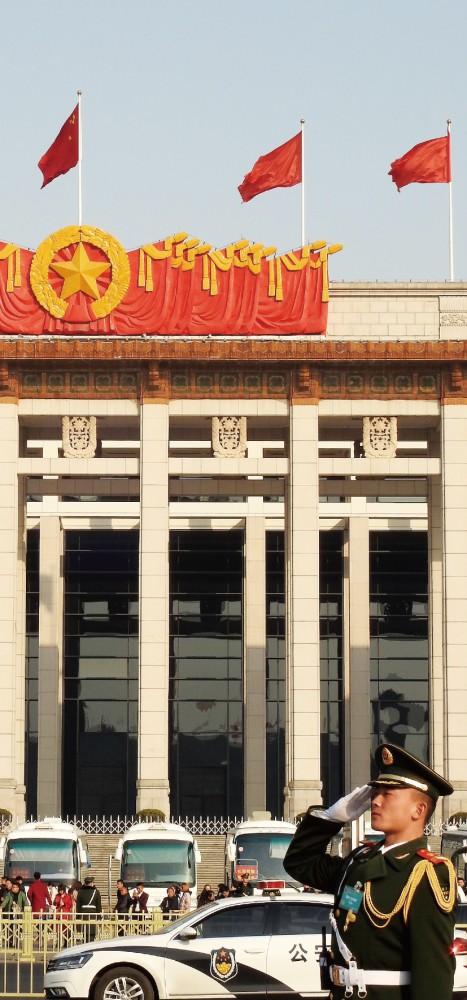 Li pointed out that the younger generations are extremely important to China’s future. They must gain a greater understanding of their country and avoid being misled. He believes that many of Hong Kong’s youth still don’t know enough about China and that in the future major popular science events, visits by Olympic gold medalists, and technology and innovation exhibitions, etc could be held in the Bay Area. Also, trips could be organized for students in Hong Kong to visit the Mainland to promote exchange with local students and help Hong Kong youths know more about their Motherland. Li also recommended that events like visiting the training centers of national sports teams, musical and cultural exchanges and internship opportunities with Mainland companies could also help Hong Kong students have a deeper and broader participation so as to feel closer with and better understand our Motherland.
Li pointed out that the younger generations are extremely important to China’s future. They must gain a greater understanding of their country and avoid being misled. He believes that many of Hong Kong’s youth still don’t know enough about China and that in the future major popular science events, visits by Olympic gold medalists, and technology and innovation exhibitions, etc could be held in the Bay Area. Also, trips could be organized for students in Hong Kong to visit the Mainland to promote exchange with local students and help Hong Kong youths know more about their Motherland. Li also recommended that events like visiting the training centers of national sports teams, musical and cultural exchanges and internship opportunities with Mainland companies could also help Hong Kong students have a deeper and broader participation so as to feel closer with and better understand our Motherland.
Li believes that tourism is not simply an industry, but the first window into the country for its visitors. It is also an important source of revenue for other related industries to fuel development. If China plans to revamp its strategy for the tourism industry, Li believes that it must strengthen training of front-line personnel and establish a system that protects the intellectual property rights of tourist products to prevent their decline in attractiveness due to rampant replication. He also pointed out that the tourism industry should establish a mechanism for maintaining a “black list” of travel companies to act as a deterrent to others. Finally, he feels that tourist destinations should move with the times, add new elements, strengthen promotion and review charges every now and then.
During this year’s “Two Sessions”, Li also submitted concrete recommendations for the industrial and business sector as well as the development of the Guangdong-Hong Kong-Macao Bay Area and “Belt and Road”. These include: remove certain restrictions on daily commodities for personal use to enter the Mainland, allow proprietary Chinese medicines registered in Hong Kong to enjoy trial sales in the Bay Area, set up a unique system to train TCM personnel, encourage the exchange and cooperation of Chinese and Western medicine, and promote the research and development of ethnic medicines. He hopes that Hong Kong’s TCM industry can integrate into the Mainland’s development strategies, which can benefit the people; he also hopes that the TCM industry can both continue its tradition and encourage innovation.
Ian Fok: Focus on Bay Area development, welcome new practical arrangements
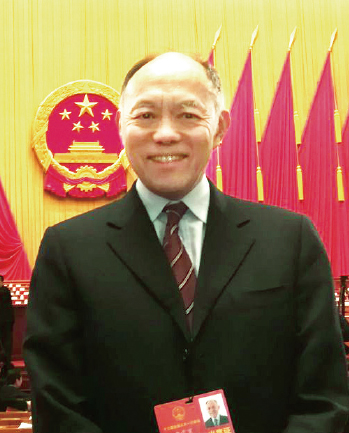
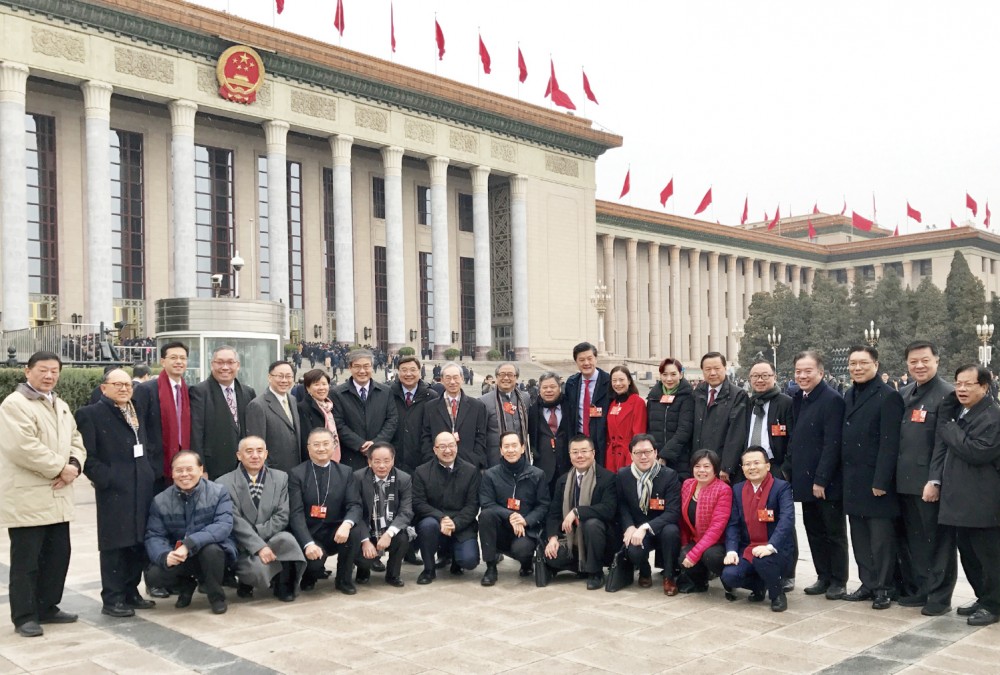 When meeting with the Guangdong delegation, President Xi Jinping specifically wanted the Bay Area to be built into a development frontier competing globally. When listening to the views of the Hong Kong delegation, Wang Huning, Secretary of the CPCCC Secretariat encouraged Hong Kong to integrate into the country’s overall development. Life Honorary Chairman Ian Fok (NPC Deputy), pointed out that the Bay Area development is a subject that Hong Kong and Macao deputies are most concerned about and for this particular subject they put forward the most suggestions. It is also an opportunity for Hong Kong businesses to show their mettle.
When meeting with the Guangdong delegation, President Xi Jinping specifically wanted the Bay Area to be built into a development frontier competing globally. When listening to the views of the Hong Kong delegation, Wang Huning, Secretary of the CPCCC Secretariat encouraged Hong Kong to integrate into the country’s overall development. Life Honorary Chairman Ian Fok (NPC Deputy), pointed out that the Bay Area development is a subject that Hong Kong and Macao deputies are most concerned about and for this particular subject they put forward the most suggestions. It is also an opportunity for Hong Kong businesses to show their mettle.
Based on his many years of business experience in Nansha, Fok suggested expanding the scope of areas not under customs control in places of the free trade zone where there is a port and establish a park for experimenting modern services. The park should apply certain commonly used international regulations to improve interaction among the three places, which is currently hindered by irrational laws and regulations. He also proposed co-development of tourism in the three places, including yacht tourism and opening up inland rivers. In addition, he suggested promoting further interaction among talents and youth
This year’s Two Sessions took several days longer than in the past and special learning gatherings were arranged before going to Beijing, which made Fok sense that the country is entering a new era of going from prosperity to strength. With regards to meeting arrangements, besides reducing the number of banquets as in recent years, people at this year’s session were required to submit written application for dining out. Fok believes that these arrangements save time and enable everyone to focus on the meetings, which help create a good atmosphere.
Fok added that among the many items on the agenda of this year’s session, the focus was to amend the Constitution for the new situation, establish an anti-corruption supervisory committee, deepen the State Council’s institutional reform and elect new leaders. Honoured to have a part in it, he felt that it was like participating in the reform and opening up 40 years ago. Witnessing the solemn and grand ceremony of President Xi’s oath taking and people singing the national anthem made Fok proud of the country’s development.
Peter Wong: Jurisprudence in Mainland and Hong Kong
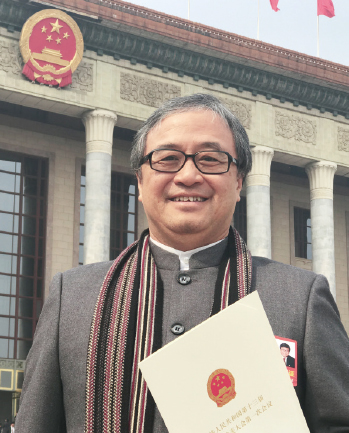
After listening to the government report, Life Honorary Chairman Peter Wong (NPC Deputy) expressed his belief that policies related to the Guangdong-Hong Kong-Macao Bay Area offers tremendous opportunities to Hong Kong and so he has high hopes for the future development in Hong Kong.
 Proposals put forward by Wong at the “Two Sessions” this year were mainly recommendations for the Central and Hong Kong governments. At the national level, he stated that many international conventions clearly state that after World War II, Japan should return sovereignty of islands in the Pacific Ocean and the South China Sea to the countries they invaded during the war, so he believes legal protection of China’s rights in the South China Sea should be guaranteed. He also stated that the “Two Supremes” (ie, the Supreme People’s Court and the Supreme People’s Procuratorate) have seen marked improvement in the handling of cases, which is to be commended. However, in addition to the number of cases processed, he also hopes to see improvement in the quality of how they are processed. He hopes that the promotion of young officials will not result in the non-recognition of the decisions of their predecessors and that they will uphold the equality and fairness of the rule of law.
Proposals put forward by Wong at the “Two Sessions” this year were mainly recommendations for the Central and Hong Kong governments. At the national level, he stated that many international conventions clearly state that after World War II, Japan should return sovereignty of islands in the Pacific Ocean and the South China Sea to the countries they invaded during the war, so he believes legal protection of China’s rights in the South China Sea should be guaranteed. He also stated that the “Two Supremes” (ie, the Supreme People’s Court and the Supreme People’s Procuratorate) have seen marked improvement in the handling of cases, which is to be commended. However, in addition to the number of cases processed, he also hopes to see improvement in the quality of how they are processed. He hopes that the promotion of young officials will not result in the non-recognition of the decisions of their predecessors and that they will uphold the equality and fairness of the rule of law.
Regarding constitutional amendments and institutional reforms, Wong said that the changes were historic, forward-looking and far-reaching. The establishment of the Supervision Committee adds one more power on top of the three powers and is an extremely important government agency that goes beyond government and party boundaries.
Wong continued to point out that jurisprudence should receive more attention in Hong Kong as well. The fact that the Basic Law has been in operation for 20 years means that it is time for a comprehensive review of its deficiencies. He recommended that the NPC Standing Committee plan and lead theoretical research and publicity in Hong Kong on the Basic Law. It should also review the requirements for procedures, organization, personal character and professional standards for judicial institutions within the text of the Basic Law to avoid transgression of judicial principles in the future. Wong also pointed out that while it may not be time for Article 23 to be put into practice, the Hong Kong deputies should prepare by examining the language of the law, and suggested that a dedicated research group be established to this end. In addition to the rule of law, considering the long-term anti-government sentiment among Hong Kong youth caused by misleading propaganda, Wong also hopes that more young people in Hong Kong will join China’s regular army to gain a sense of responsibility to protect our nation.
Some photos provided by Vice-Chairman Tommy Li and Life Honorary Chairman Henry Wu




